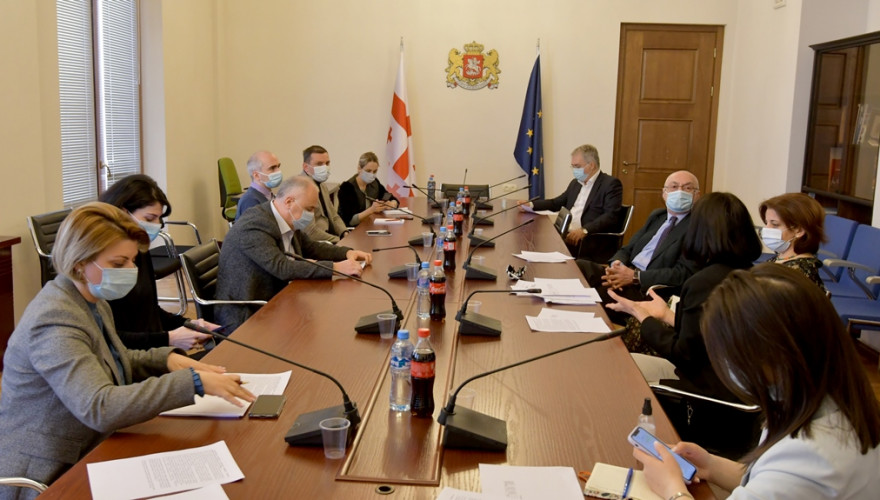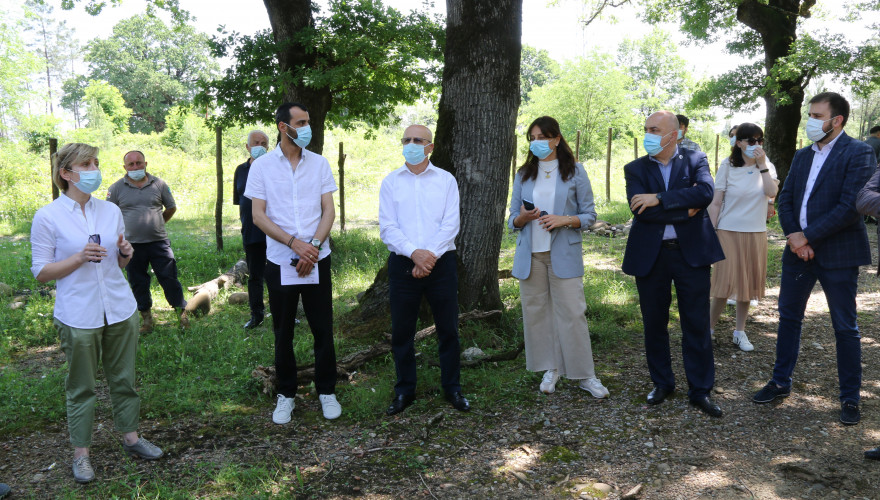Dimitri Khundadze: We intend to launch additional social programs to address the child poverty

The Health Care and Social Issues Committee held the working meeting with the representatives of the Ministry of IDPs from the Occupied Territories, Labor, Health and Social Protection and UNICEF to discuss certain programs for addressing child poverty.
As noted, the abject child poverty within 2009-2017 decreased from 13% to 6.2%, and even 3% in 2015. However, the pandemic entailed the decline of the economy in the world, which has a negative effect on the domestic economies and budget. Hence, the risks that the children encounter started to increase, posing higher threats to them.
Correspondingly, the socio-economic situation of certain families and especially the families with children is getting aggravated. We expect further aggravation of child poverty, which now requires immediate development of certain programs to prevent more problems for these families. In this view, this meeting followed the meeting of the Chair of the Committee, Dimitri Khundadze with the UNICEF Resident Representative, Ghassan Khalil last week.
They planned the forced necessity for the development of certain social programs to facilitate the prevention of aggravation of child poverty.
“Poverty in the country remains an acute and unresolved problem, especially amongst children. Despite the positive dynamics in this regard in 2009-2010 and the best index in 2015, the situation aggravated against the economic crisis and inflation. The situation is further complicated due to the pandemic, which aggravated the socio-economic situation of every family and increased child poverty. Thus, in addition to the state programs, other social programs of more than 700 ml GEL have been undertaken, only mitigating the acuteness of the problem, though the problem remains due to the pandemic and it makes us expect further aggravation of poverty. Hence, we decided to make the forced decisions and develop additional social programs, especially for the children and mitigate their poverty”, - D. Khundadze stated.
According to him, this is the second working meeting with the participation of the Ministry and UNICEF aiming at the development of the plans.
“This meeting was dedicated to certain issues. We planned and distributed the functions amongst the agencies, for instance, UNICEF is to actively make decisions on the estimated efficiency analysis and respective indices. The targeted studies will be very useful as well about the efficiency of interventions. The Health Ministry was assigned to model the programs and calculate the necessary resources, and identify the existing nutrition vouchers to allow us making the prompt decisions”, - he added.





